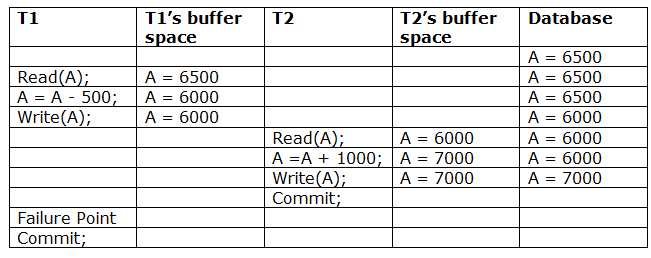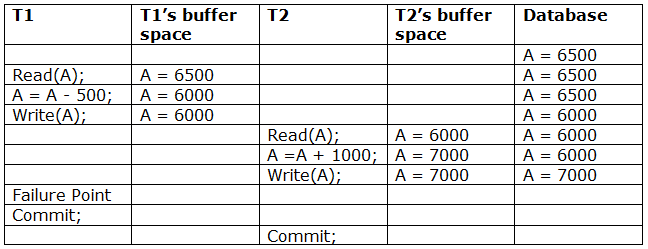Recoverability of Schedule
Sometimes a transaction may not execute completely due to a software issue, system crash or hardware failure. In that case, the failed transaction has to be rollback. But some other transaction may also have used value produced by the failed transaction. So we also have to rollback those transactions.

The above table 1 shows a schedule which has two transactions. T1 reads and writes the value of A and that value is read and written by T2. T2 commits but later on, T1 fails. Due to the failure, we have to rollback T1. T2 should also be rollback because it reads the value written by T1, but T2 can't be rollback because it already committed. So this type of schedule is known as irrecoverable schedule.
Irrecoverable schedule: The schedule will be irrecoverable if Tj reads the updated value of Ti and Tj committed before Ti commit.

The above table 2 shows a schedule with two transactions. Transaction T1 reads and writes A, and that value is read and written by transaction T2. But later on, T1 fails. Due to this, we have to rollback T1. T2 should be rollback because T2 has read the value written by T1. As it has not committed before T1 commits so we can rollback transaction T2 as well. So it is recoverable with cascade rollback.
Recoverable with cascading rollback: The schedule will be recoverable with cascading rollback if Tj reads the updated value of Ti. Commit of Tj is delayed till commit of Ti.

The above Table 3 shows a schedule with two transactions. Transaction T1 reads and write A and commits, and that value is read and written by T2. So this is a cascade less recoverable schedule.

0 comments:
Post a Comment
Thanks